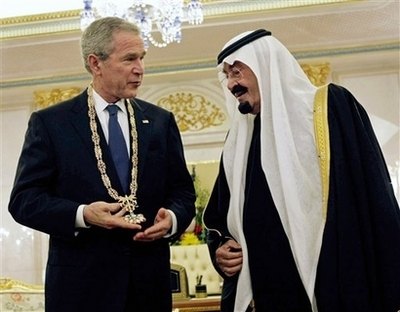Congress likely to OK Saudi arms deal
Updated: 2008-01-15 09:31
WASHINGTON -- The Democratic-led Congress is unlikely to block US plans to sell $123 million worth of sophisticated precision-guided bomb technology to Saudi Arabia, despite concerns from some members that the systems could be used against Israel.
|
|
Privacy Policy The Bush administration on Monday notified Congress of its intent to sell the bomb-delivery systems as part of a multibillion-dollar arms package to bolster the defense of US allies in the Gulf.
Rep. Tom Lantos, chairman of the House Foreign Affairs Committee, does not intend to consider a resolution of disapproval, said spokeswoman Lynne Weil. Otherwise, Lantos declined to comment.
The arms deal creates a dilemma for lawmakers, especially for Democrats eager to challenge President Bush's handling of foreign policy. At the same time, they see Saudi Arabia's cooperation as crucial to the war on terror and in deterring aggression from Iran.
"We need to be convinced that the sale makes sense militarily and ensure that it in no way harms our security or those of our allies," said Sen. Joseph Biden, D-Del., chairman of the Senate Foreign Relations Committee. "We must also make certain that the administration does not just try to use a few arms sales to substitute for the comprehensive, coherent strategy we need for the region."
Timed to coincide with Bush's trip to Saudi Arabia, the notification opens a 30-day window during which lawmakers can object to the sale, which envisions the transfer of 900 Joint Direct Attack Munitions, or JDAMs, to the Saudis, the State Department said.
The proposed deal follows notification on five other packages to Saudi Arabia, the United Arab Emirates and Kuwait, and brings to $11.5 billion the amount of advanced US weaponry, including Patriot missiles, provided to friendly Arab nations under the Gulf Security Dialogue, spokesman Sean McCormack told reporters.
Administration officials say the total amount of sales as part of the dialogue is estimated at $20 billion, but they also have cautioned that the figure is subject to what equipment the receiving countries actually purchase.
The sale is a key element in the US strategy to bolster the defenses of its Arab allies in Saudi Arabia and other oil-producing majority Sunni Muslim Gulf nations against threats from Shiite Iran.
A principal aim of Bush's Mideast visit is to convince the Saudi leadership as well as those in Kuwait, Bahrain and the United Arab Emirates that he remains committed to preventing Iran from destabilizing the region, despite US intelligence findings that Tehran halted its nuclear weapons development in 2003.
Congress has already been briefed on the entire Gulf Security Dialogue arms package, which includes the sale of the Navy's Littoral Combat system as well as the JDAMs kits. During these meetings, the administration assured lawmakers that there would be proper restrictions on the JDAMs sale to ensure that the weapon would not pose a threat to Israel.
|
|
|
||
|
||
|
|
|
|


